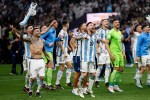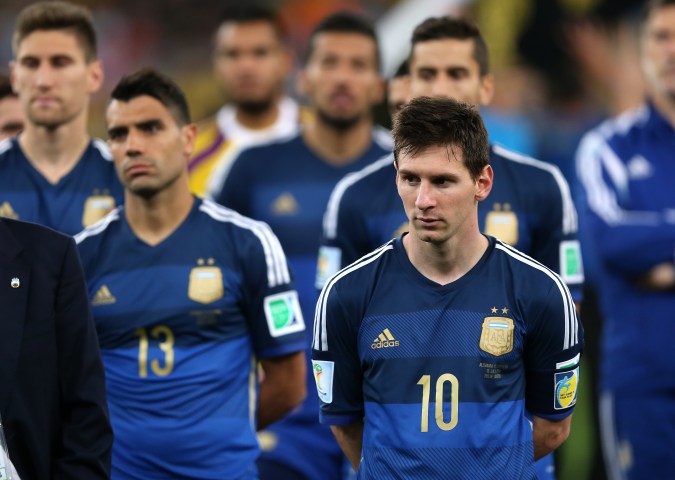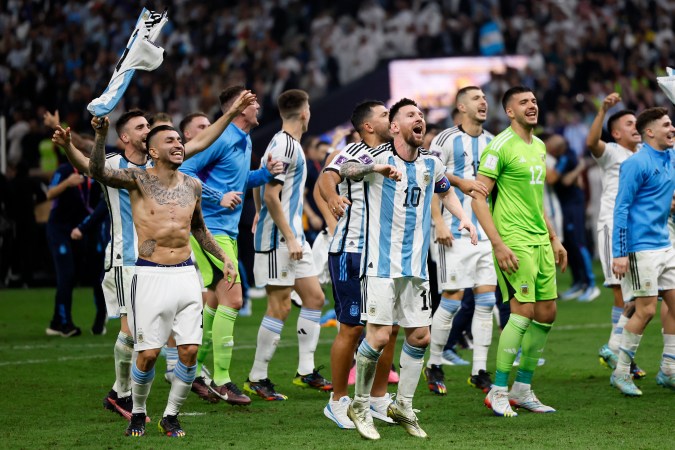In a country that experiences fútbol as a religion, Lionel Messi is a deity of sorts. He’s won every individual trophy and team competition, both at the club level, and now at the national team level. He’s widely recognized as one of, if not the best player, to ever play the game. And he is, by every measurable metric, the most popular sportsperson in the world, with his Instagram picture celebrating Argentina’s World Cup win now the most liked picture in the social media platform’s history.
But he wasn’t always that. In fact, even a few years ago, it was hard to believe Messi could ever get here. And when he moved to Barcelona at age 13, a kid who suffered from growth hormone deficiency and whose parents could not afford the treatment required for him to develop normally, the notion that the boy who would later be nicknamed “La Pulga” would ever eclipse Diego Maradona in the hearts of Argentinians was unthinkable.
Messi, however, put in the work to get there. At Barcelona, a place where Argentina’s World Cup win was celebrated almost as much as a Spanish win would have been. And back in Argentina, where he won an U20 World Cup, and an Olympic Gold Medal. But sometimes hard work isn’t all that matters in a team sport, particularly when you’re playing against other great players and teams. Sometimes, you need the right people, the right environment – and the right attitude.
It wasn’t easy to get there.


For Messi, there was defeat after defeat at fútbol’s biggest stages: The World Cup and the Copa America. And there was a particularly rough spell where Argentina lost three finals in a row, the 2014 World Cup final to Germany, and the 2015 and 2016 Copa America finals, both to Chile. It was then that Messi said “I’m done,” announcing his decision to retire from international fútbol. If there is such a thing as rock bottom, Messi hit it then. But that wasn’t to be the end of Lionel Messi’s story. Instead, it was the beginning of a new mentality that, in 2022, has given Argentina a World Cup.
For Messi came back, not to glory, but to a team that was still trying to find their way, not just on the field, but outside of it. Except now, the little kid who had to go to Barcelona to be able to grow – and play football, had grown into something more than a leader, he’d grown into an inspiration. So when he picked himself back up and tried again, he found others willing to do the same. And around those older players, Ángel Di María, Nicolás Otamendi, and Sergio Agüero, a team of younger players was built by a coach with very little experience, but with very clear ideas.

There were moments during Argentina’s 2022 World Cup run when it felt like destiny, or magic, was on their side. But what the two Lionels – Messi and Argentina’s head coach, Scaloni, did with the team, is something much more tangible. It’s centered upon the idea that we can learn much more from our defeats than we can from our triumphs, and that failure doesn’t define us. The way we face it does. So Messi got up again after a 2018 World Cup run that ended in the round of 16, ironically, against France. And he kept getting up and inspiring the players around him to do so.

It would all pay off in 2021, with Argentina winning its first major title in 28 years. They’d then go on to win the Finalissima, a tournament that pits the winner of the Copa America against the winner of the UEFA European Championship, and the FIFA 2022 Qatar World Cup, a tournament they entered as favorites but where they shockingly lost the first game to Saudi Arabia 2-1.
For any other team, it might have been the end. For Lionel Messi’s Argentina, however, it was just another chance to prove that no matter how many times they get knocked down, they will continue to get back up. The same fighting spirit was evident in their quarterfinal win against the Netherlands, and the final against France, both games they were easily winning before their opponents managed to tie, despite being massively outplayed. But it matters not because Argentina got back up.

Argentina got back up against the Netherlands, and they won. They got back up against France, and they won. And as Lionel Messi raised the World Cup trophy above his head on the evening of December 18th, 2022, one thing was clear: a championship team needs more than good fútbol. It needs perseverance, and it needs inspiration. Lionel Messi provided them with both, and he will likely continue to do so for not just his teammates, or a country that desperately needs a bright spot, but an entire generation of kids who grew up watching this Argentina, this Lionel Messi.
That is the Messi effect. That is his legacy. And though there’s a lot to celebrate fútbol wise, that might indeed be the thing he is remembered for.




